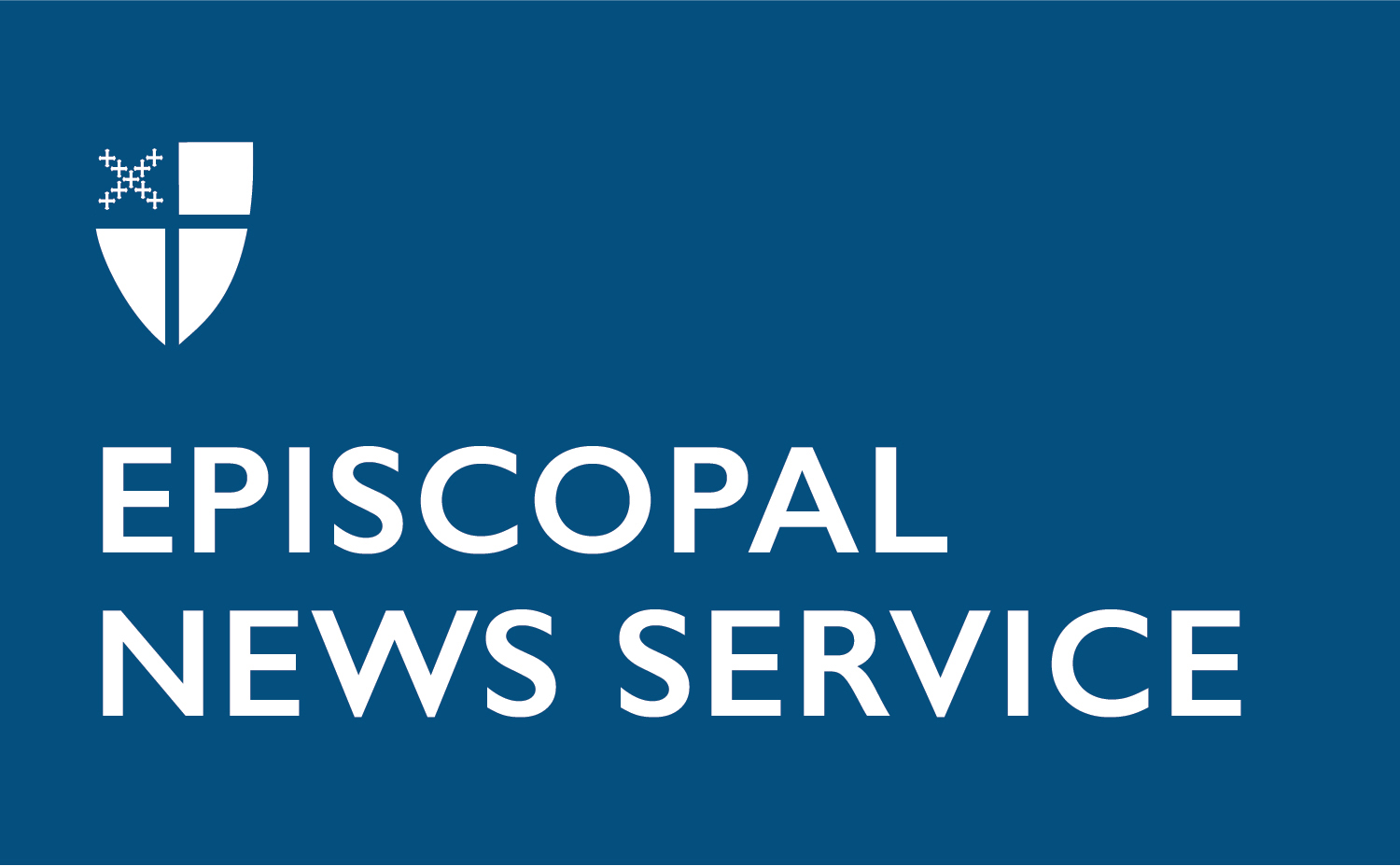Travel
In nine years, presiding bishop’s travels have touched more than 100 dioceses and counting

Presiding Bishop Michael Curry preaches July 25, 2017, at the 145th Niobrara Convocation at Red Shirt Table, South Dakota. Photo: David Paulsen/Episcopal News Service
[Episcopal News Service] One of the core duties of The Episcopal Church’s presiding bishop is to visit every diocese at least once during the denominational leader’s nine-year term, and for Presiding Bishop Michael Curry, who will conclude his tenure in office at the end of October, that has meant a lot of travel – more than 100 dioceses and counting.
The Diocese of Alaska? Curry preached there in September 2017 during a House of Bishops meeting in Fairbanks. The Diocese of Puerto Rico? Curry traveled there in January 2018, months after the territory was hit by Hurricane Maria. Taiwan? South Dakota? Florida? Yes, yes and yes.
“One of the great joys and real privileges of serving as presiding bishop of our church has been to have a panoramic view of who we actually are as followers of Jesus in the Episcopal way,” Curry said in a written statement to Episcopal News Service. “I can tell you this: from all of my travels in nine years, quite literally around the globe, God is not finished with The Episcopal Church yet.”
The final diocesan trip of Curry’s primacy is scheduled for the end of this month, when the Diocese of Wyoming will welcome Curry at its diocesan convention in Casper. Before then, Curry is now visiting the Diocese of Tennessee, where he will preach Sept. 7 at a Holy Eucharist at St. George’s Episcopal Church in Nashville, a service that will be livestreamed.
“We are glad to welcome Bishop Michael to the Diocese of Tennessee and are so grateful for his ministry to us,” Tennessee Bishop John Bauerschmidt said in a statement to ENS for this story. “The visit of our presiding bishop to Nashville and Middle Tennessee reminds us that Christianity is a global phenomenon, and that we are part of a larger whole.”
Episcopal Church Canon I.2.4 outlines the office’s responsibilities. It specifies that the presiding bishop has at least three canonical tasks when traveling to each diocese for a pastoral visit: “holding pastoral consultations with the bishop … preaching the Word and celebrating the Holy Eucharist.”
In Tennessee, Curry was scheduled to meet Sept. 6 with 70 or so diocesan clergy at St. Bartholomew’s Episcopal Church in Nashville, followed by lunch. He has a separate meeting planned with Bauerschmidt.
He also has traveled widely for bishop consecrations and will preside at two more while still in office, on Sept. 14 in the Diocese of Olympia and on Oct. 19 in the Diocese of Massachusetts. Both dioceses previously welcomed him for pastoral visits, earlier in his term.
Curry’s successor, Presiding Bishop-elect Sean Rowe, already has begun scheduling travel around the church. In early October, he will be in Stevens Point, Wisconsin, where he will speak at the first convention of the newly reunited Diocese of Wisconsin. In June, the state’s three dioceses received approval to combine from the 81st General Convention.
That and other diocesan changes approved by General Convention slightly reduced The Episcopal Church’s number of dioceses to 106, along with the Convocation of Episcopal Churches in Europe. Rowe will take office on Nov. 1 and then will have nine years to fulfill the canon requiring visits to those dioceses.

Presiding Bishop Michael Curry prepares to shoot a video on his cell phone of an altar frontal with some of the youth of Diocese of Pittsburgh during his visit in February 2017. Photo: Mary Frances Schjonberg/Episcopal News Service
Curry, since he was installed as presiding bishop in November 2015, has embarked on countless trips to dioceses across this global denomination, which he leads as chief pastor. He is on track to conclude his term having visited every diocese except one, Venezuela, where safety concerns due to violence and civil unrest have not permitted Curry to visit.
The Episcopal Church, Curry told ENS, reflects “the great diversity of people who live and serve in Latin America, in Europe, in the Pacific and Asia region, on reservations, in cities, suburbs and small towns. I’ve seen our churches struggle — and I’ve seen them with the amazing creativity of the Holy Spirit rise up and bear witness to the way of love in this 21st century in which we live.”
The underlying purpose of Curry’s travel has varied with each diocesan visit. For one of his first diocesan events as presiding bishop, Curry’s visit to the Diocese of Michigan in February 2016 coincided with the Feast of Absalom Jones, which Curry highlighted in his sermon at the Cathedral Church of St. Paul in Detroit.
In March 2020, Curry traveled to Cuba to help celebrate that diocese’s re-entry into The Episcopal Church. “On behalf of the entire Episcopal Church, we love Cuba,” Curry said in his sermon to the diocesan convention held at Holy Trinity Cathedral in Havana.
In many other dioceses, his itineraries were structured around revival-style events, a signature of Curry’s nine years in office. The first was held in the Diocese of Pittsburgh in February 2017. Other host dioceses where Curry preached at revivals have included West Missouri, Georgia, Honduras and San Diego.

Presiding Bishop Michael Curry speaks in November 2017 in Stockton, California, at the start of the Diocese of San Joaquin’s three-day revival. Photo: Mary Frances Schjonberg/Episcopal News Service
California’s Diocese of San Joaquin also hosted a revival with Curry, and his visit there in November 2017 celebrated the diocese’s recovery from 10 years of struggle after the diocese’s previous bishop led a majority of Episcopalians to leave The Episcopal Church over theological differences. The Rt. Rev. David Rice was invested as the diocese’s new bishop at a service St. James Episcopal Cathedral in Fresno, with Curry preaching.
“You may well have shown us the future hope of The Episcopal Church, and its witness in this world,” Curry said at the time in his sermon at St. James. “You have been a witness for Jesus by standing up for love.”

Presiding Bishop Michael Curry preaches Oct. 20, 2019, at St. John’s Episcopal Church in downtown Montgomery, Alabama. Photo: David Paulsen/Episcopal News Service
Curry has traveled to numerous other dioceses in his capacity as the head of various church governing bodies, such as Executive Council and the House of Bishops. For example, when the Diocese of Alabama hosted Executive Council’s October 2019 meeting, Curry preached at St. John’s Episcopal Church in Montgomery. He also preached at large revivals in 2018 at the 79th General Convention, hosted in Austin by the Diocese of Texas, and in June 2024, when the Diocese of Kentucky hosted the 81st General Convention in Louisville.
Some diocesan visits were scheduled so Curry could provide pastoral care to Episcopalians dealing with the aftermath of tragedies and disasters. Several of those dioceses were recovering from devastating hurricanes, such as Puerto Rico. He visited the Diocese of the Virgin Islands in January 2018, months after that territory was hit by Hurricane Irma.
Also in January 2018, Curry made a pastoral visit to the Diocese of Texas, meeting with people in Houston who were affected by the flooding caused by previous year’s Hurricane Harvey. The following month, he paid a similar visit to the Diocese of West Texas.
And in January 2019, Curry traveled to Florida’s panhandle to meet with Episcopalians in the Diocese of the Central Gulf Coast whose communities had been in the path of Hurricane Michael the previous October.
Curry spent a weekend in and around Panama City encouraging residents to share their stories of recovery and assuring them that The Episcopal Church has not forgotten or given up on them. “To hear what you have done and are doing, therein is hope and grace and the power of love,” Curry said during a listening session at Holy Nativity Episcopal Church.

Presiding Bishop Michael Curry preaches in January 2019 at St. Andrew’s Episcopal Church in Panama City, Florida. Photo: David Paulsen/Episcopal News Service
Central Gulf Coast Bishop Russell Kendrick, in a statement to ENS, recalled how meaningful Curry’s visit was for his diocese at a time when the effects of the hurricane were still visible and residents were still struggling to clean up and rebuild.
“On the day of his visit to Panama City, he stood in a church nave that was still heavily damaged by the storm. He stood in a room full of hundreds of people who had lost everything. And he listened,” Kendrick said. “He leaned in to people as they told their stories, and he listened in a way that conveyed his care. He lifted them up and comforted them. And he prayed for them.
“Bishop Curry may have said a few things, but more than anything it was his presence that mattered to people and helped their healing. He showed up. On that day, Bishop Curry was our pastor.”
Curry, in reflecting on his frequent travel across the church as presiding bishop, invoked Jesus’ message to his disciples at the Last Supper in the Gospel of John: “When the Holy Spirit comes, the Spirit will lead you into all truth.”
“What I know from the testimony of Holy Scripture, the promise of Jesus himself, and what I actually have seen both as presiding bishop for nine years and as an ordained clergy person for over 45 years, is that Jesus was and is right,” Curry said. “The Holy Spirit will lead us into God’s future for this Episcopal Branch of the Jesus Movement.”
– David Paulsen is a senior reporter and editor for Episcopal News Service based in Wisconsin. He can be reached at dpaulsen@episcopalchurch.org.









